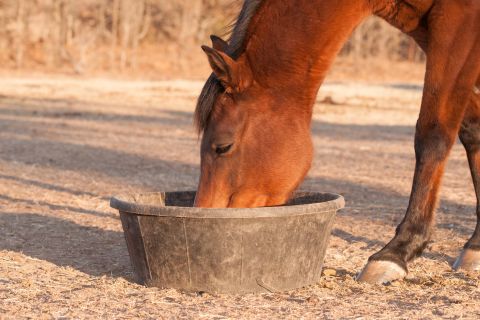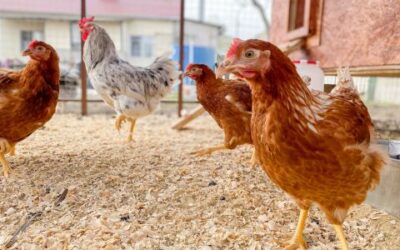
Traditional horse feeding practices often involve a heavy reliance on grains, such as oats and corn. However, recent research and growing awareness have led to a shift towards exploring alternative horse feeding practices that may offer various benefits for equine health and well-being. One key area of focus is reducing the intake of high-sugar grains and incorporating more nutrient-dense, low-sugar options. We will outline the potential health risks associated with high-sugar grains, examples of alternative horse feeding options, and tips to transition your horse to a low-sugar diet.
The Downsides of High-Sugar Grains
High-sugar grains, such as corn and oats, can contribute to several health issues in horses, including:
- Metabolic disorders: Excess sugar intake can lead to conditions like insulin resistance and laminitis.
- Weight gain: High-calorie grains can contribute to obesity and related health problems.
- Dental problems: Chewing on hard grains can cause dental wear and tear.
Benefits of Low-Sugar Feeding
Transitioning to a low-sugar feeding regimen can offer several advantages:
- Improved metabolic health: Reducing sugar intake can help prevent metabolic disorders and improve insulin sensitivity.
- Weight management: A low-sugar diet can aid in weight loss or maintenance for horses that are prone to obesity.
- Dental health: A focus on softer, more digestible feeds can reduce the risk of dental problems.
- Improved performance: Some horses may experience enhanced athletic performance when fed a low-sugar diet.
Alternative Feeding Options
Here are some alternative feeding methods for horses to consider:
- Low-sugar hay: Opt for high-quality, low sugar hay for horses that is low in sugar content but rich in nutrients. Timothy hay and orchardgrass are popular choices.
- Forage-based feeds: These feeds are formulated with a high percentage of forage, such as hay or grass, and often contain lower levels of grains.
- Fiber supplements: Incorporate fiber supplements like beet pulp or psyllium husk to increase the fiber content of your horse’s diet.
- Protein supplements: If your horse requires additional protein, explore options like alfalfa hay or protein supplements derived from plant sources.
Tips for Transitioning to a Low-Sugar Diet
When transitioning your horse to a low-sugar diet, keep these tips in mind:
- Gradual changes: Make gradual changes to avoid digestive upset.
- Monitor your horse: Pay attention to your horse’s appetite, weight, and overall health during the transition.
- Consult with a veterinarian: Seek advice from a veterinarian to ensure your horse’s nutritional needs are met.
- Consider supplements: Some horses may require additional supplements to compensate for the reduced intake of certain nutrients.
By exploring alternative feeding options for horses and incorporating low-sugar options, you can help improve your horse’s overall health, well-being, and performance. This approach ensures your horse receives balanced nutrition while minimizing potential health risks, such as weight gain and dental issues. Remember to consult with a veterinarian to develop a feeding plan that is tailored to your horse’s individual needs.




